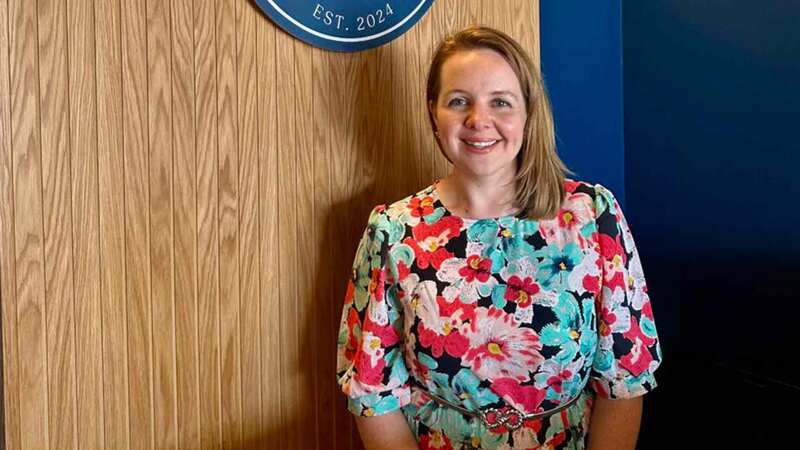You are viewing your 1 free article this month. Login to read more articles.
Will you take on the 1% challenge?
Everyone deserves the opportunity to read for joy, including dyslexic adults.
The joy of reading a printed book is encapsulated by a dyslexic reader of BOTH Press books, using the Portishead Library services: “What a great concept. Finally some grown-up stories in a format I can read. Wish we had these when I was at school”.
A small number of indie publishers have been trying to bring this sort of joy to readers with dyslexia, by producing printed books that are formatted to be accessible, and it’s an essential endeavour. Defined by the National Literacy Trust, reading for pleasure or joy is “reading that we do of our own free will, anticipating the satisfaction that we will get from the act of reading" (Clark and Rumbold, National Literacy Trust, 2006).
As someone with dyslexia, “joy of reading” is something that I certainly did not start off with, and that honestly not everyone achieves, whether they have dyslexia or not. Educators, reading charities and children laureates quite rightly advocate for reading for pleasure, which many studies show can have a major impact on children and adults for their future prospects. It is argued there is a positive relationship between reading regularity, reading enjoyment and achievement (Clark 2011; Clark and Douglas 2011).
Stress of reading
So why are adults with dyslexia not encouraged to read for pleasure? From discussions I have had, an idea persists that people with dyslexia don’t like to read, and don’t want to read. Instead, we give them assisted technology that will help them navigate society, but which can be astronomical in price. There is such a thing as dyslexia poverty; see the article "Dyslexia: Let’s drop the clichés and start recognising the cost, the challenges and the condition’s different forms" by Alastair GJ Stewart in the Scotsman (21st October 2022).
Yes, reading is much more stressful with dyslexia. It can be uncomfortable, so downright tough that you just don’t want to try. But – and this is something I think people rarely see, although I have seen it first-hand as a bookseller – this does not have to be the case.
Come on book industry – get on board and commit to produce at least 1% of your adult output, both fiction and non-fiction, in dyslexic friendly format
Let me share two examples.
A 10-year-old girl and her mother came to my bookshop, Books on the Hill in Clevedon, as they were told we were the best place to find printed dyslexic friendly books. We took them to the bookshelf and the girl was dubious at first; the mother too was nervous, unsure. We opened one of the books up, showing them the formatting, and the change in their expressions would make your heart stop. The girl smiled and you could tell that she wanted to read, and read for joy, and here was something that made that possible. They took their time and together rummaged through our books, finally taking four.
Secondly, a young man who is dyslexic regularly comes into our shop. He generally goes for the Barrington Stokes children’s books, but when he saw our selection, catering for his age, he was so happy that he proceeded to buy every one. He has been enjoying them and keeps asking when our next book will be published. Our publishing can’t keep up with his will to read.
Question of resources
We must get the right resources in the right places; libraries are a brilliant example of this. David Moger of North Somerset Libraries agrees: “There is a great need for books suitable for adults with dyslexia and we in North Somerset Libraries are very happy to support BOTH Press in this venture.”
Reading for pleasure is such an important concept, but one that has not really been explored by certain dyslexia charities who tend to focus on reading for functionality rather than for pleasure. There are little resources and no encouragement of reading for joy for adults with dyslexia.
This has to change.
BOTH Press has been leading the way on trying to bring joy to readers who deal with dyslexia, or with any reading impairment. We were a regional finalist for the South West in the 2023 Best Small Press award, and I personally gained the UK Parliament’s Daily Point of Light Award for service to literature and dyslexia on World Book Day 2023. If you search for "Dyslexic friendly books for adults" on Google, BOTH Press are the first to come up.
But we are still the only easily available adult dyslexic friendly fiction in the UK – which is both remarkable and unacceptable. In past comment pieces and in a FutureBook panel last year, alongside fellow dyslexic publisher Scorpius Books, I’ve hammered on about how the top five publishers need to do more, to respond to the needs of disability in their publishing output by creating content for adult dyslexic readers, and to harness that "purple pound". And I won’t stop.
We can’t do this all on our own, and we really do need wider support from charities and the book industry
We can’t do this all on our own, and we really do need wider support from charities and the book industry to encourage that joy we know can be achieved by reading recreationally. If the publishing industry can do 1% of their adult output in dyslexic friendly-formats, it would make a huge difference.
This June marks the publication of BOTH Press’s 14th book, by bestselling author, Peter James. And with the publication of Stamp of A Criminal, I hope to rally many different organisations, including reading charities, bookshops, and bookshop.org, to support our cause, campaigning for more resources to show dyslexic adults that there are ways to read for the simple joy, via e-books, audiobooks, and in our case, printed books.
To repeat a phrase from a past piece, and because it still has relevance: it is not rocket science to produce and showcase dyslexic friendly books for adults, no matter who the publisher is.
Nick Curran, published by the "top five", and author of I Know Who You Were, says: "I hope the world of books will open up to everyone, equally, that’s why I support the 1% challenge, and really hope publishers will, too.” The acclaimed author Gareth Powell, whose Ember of War trilogy is being made into a TV show, also supports the 1% challenge and says: "Books entertain and educate. They are hugely important in a literate society, and we have a responsibility to make them accessible for everyone.”
So come on book industry – get on board and commit to produce at least 1% of your adult output, both fiction and non-fiction, in dyslexic friendly format.


















